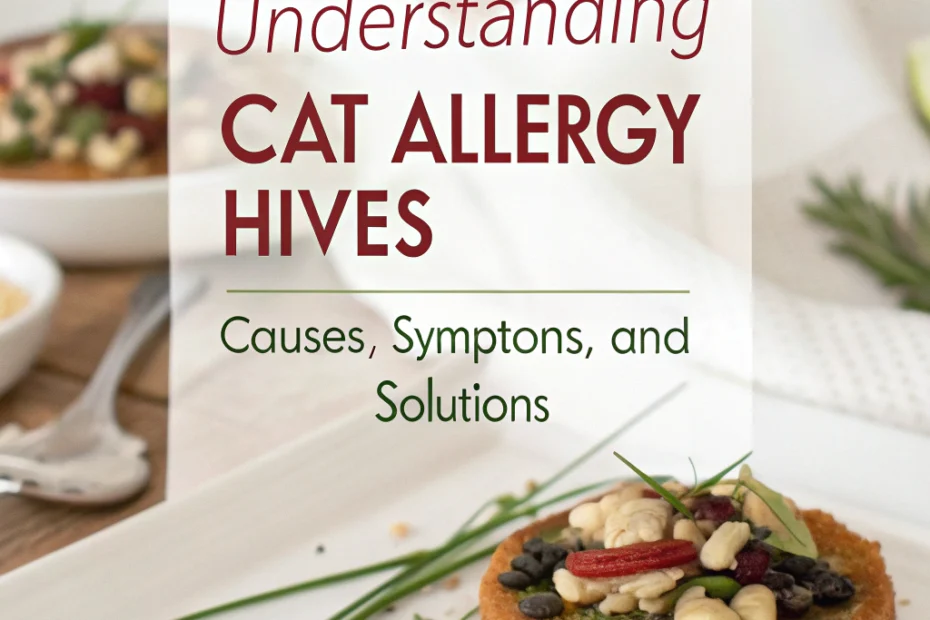At-a-Glance
Cats, like humans, can suffer from allergies, which can manifest as hives. These itchy, red welts can appear suddenly and cause significant discomfort. Understanding the causes and solutions for cat allergy hives is essential for ensuring your pet’s well-being.
How to Choose
When selecting food and treats to manage cat allergy hives, focus on hypoallergenic options. These products are formulated to minimize allergens that may trigger reactions. Look for labels that mention limited ingredients, grain-free formulas, or novel proteins like duck or venison, which are less likely to cause allergies.
Consult with your veterinarian to identify specific allergens that may affect your cat. Once identified, choose products that exclude these ingredients. Additionally, consider foods enriched with omega-3 fatty acids, as they may help reduce inflammation and support skin health.
Safety & Setup
When introducing new foods or treats to your cat’s diet, do so gradually. Transition slowly over a week to monitor any adverse reactions. Always ensure fresh water is available, as hydration is critical in managing allergies and supporting overall health.
If your cat experiences severe reactions, such as difficulty breathing or swelling, seek veterinary care immediately. Keep emergency contact information for your vet readily accessible.
Core Pillars
The core pillars of managing cat allergy hives are:
- Identification: Determine the allergen causing the reaction.
- Prevention: Avoid exposure to known allergens.
- Treatment: Use medications or supplements as prescribed by a vet to manage symptoms.
- Diet: Implement a hypoallergenic diet to reduce the risk of hives.
Placement & Environment Tips
Creating a hypoallergenic environment is vital for reducing the occurrence of hives. Regularly clean your cat’s bedding and toys to remove allergens. Consider using air purifiers to minimize airborne allergens like pollen or dust mites.
Ensure your cat’s living area is free from potential irritants such as household cleaners or scented candles. You may also want to limit outdoor exposure during high pollen seasons.
Comparison with Alternatives
In addition to hypoallergenic diets, other strategies can support your cat’s allergy management. These include:
- Medications: Antihistamines or corticosteroids prescribed by your vet may provide relief.
- Supplements: Omega-3 fatty acids and probiotics can support skin health and immune function.
- Topical treatments: Medicated shampoos or sprays can soothe irritated skin.
Each option has its pros and cons, and your vet can help determine the best course of action for your cat’s specific needs.
FAQs
What are the common signs of cat allergy hives?
Common signs include red, raised welts on the skin, itching, and excessive licking or scratching.
How quickly do hives appear after exposure to an allergen?
Hives can appear within minutes to hours after exposure to an allergen.
Can stress cause hives in cats?
While stress is not a direct cause of hives, it can exacerbate existing allergies and lead to flare-ups.
What to Do Next
If you suspect your cat has allergy hives, consult your veterinarian to identify the cause and develop a management plan. Consider transitioning to hypoallergenic foods and treats, and implement environmental changes to reduce exposure to potential allergens.
Regular check-ups with your vet will help monitor your cat’s condition and adjust treatments as necessary. With proper care and attention, you can help your feline friend live comfortably despite allergies.
Disclaimer: Always consult your veterinarian for personalized advice regarding your cat’s health.
